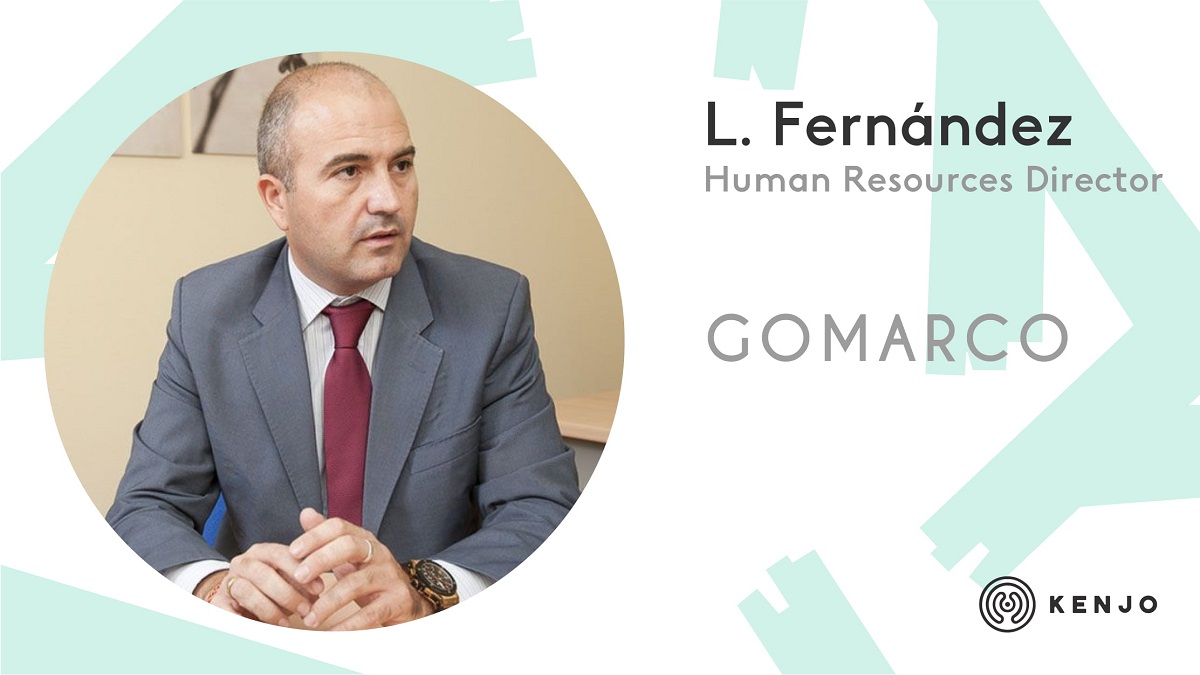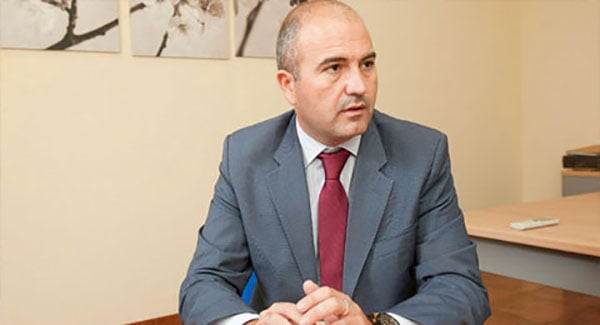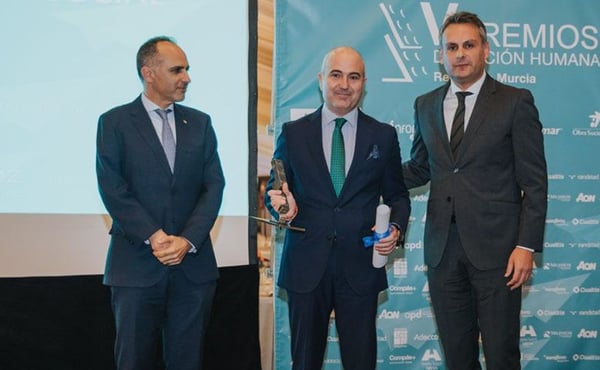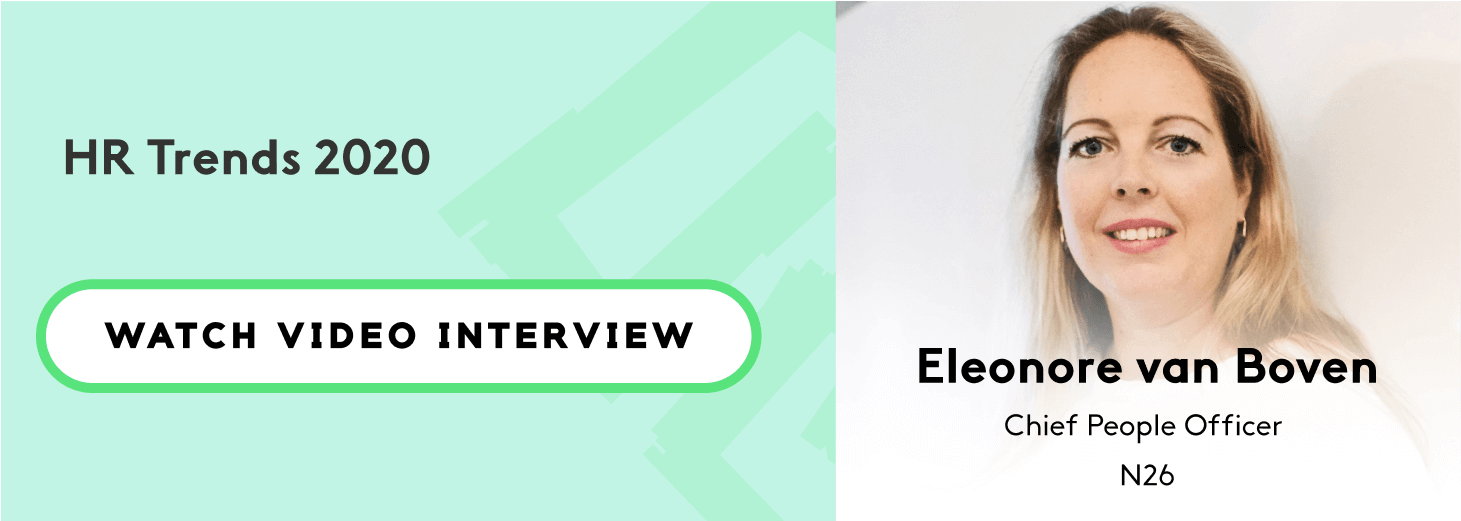How to build an HR department from scratch - Interview

In today's blog we're going to talk about how to build a human resources department, and we’ve invited a well-known Spanish HR director Lucio Fernández to help us.
 Lucio started his human resources management career in 2007. He has taken on many challenges since then, including the creation of human resources teams in some of Spain's largest companies, and the digital transformation of such departments. We talk about all of this in the following interview.
Lucio started his human resources management career in 2007. He has taken on many challenges since then, including the creation of human resources teams in some of Spain's largest companies, and the digital transformation of such departments. We talk about all of this in the following interview.
Before we start, let’s take a look at Lucio's professional background. Before becoming an HR director, Lucio was the director of expansion in an express transport company. In parallel to that, he started to work in the corporate social responsibility field, a role that supports a company’s strategy. He currently works as HR and CSR director for in the livestock industry and is also a speaker and trainer in a range of business schools, universities, administrative boards and NGOs.
Lucio Fernández is one of many industry professionals that work in close collaboration with Kenjo throughout Spain, Austria, Switzerland, Germany and other European countries. Our community is all increasing all the time and we are always open to hearing from new professionals who wish to share their knowledge, whether via an interview, an opinion article or software tester for our human resources software.

When was the first time you built an HR department from scratch?
It was in 2006 at the transport company where I was working as director of expansion, and they invited me to be their RRHH director. At that time, the department only took care of payroll, some training, occupational health and safety and a couple of other things.
The first thing I did was to review all the tasks undertaken, with the objective of analysing their cost effectiveness, necessity and potential for growth. Performing this analysis of whether it makes sense to continue doing the basic repetitive processes, or whether they should be outsourced, is key when setting up HR department.
Payroll is a good example. It's a very important process for the company (it must run smoothly) but it contributes nothing in terms of differentiating the company from its competitors. It's a standard process. In our case, we needed to keep it within the Department for two reasons: it was cheaper and its complexity made outsourcing impossible (too many variables to consider).
From then onwards, we started to incorporate more HR processes that would enable us to grow as a company: work climate surveys, structured training programs, define selection processes, welcome manual, etc.
What were your biggest mistakes? And successes?
The biggest mistake you can make is to think that all the changes you want to make are viable and can be implemented from one day to the next. When you take part in an HR executive training programme you get access to a lot of tools that have already been implemented by a multitude of companies.
As a result you’re keen to use all of them, but as soon as you implement one that doesn't work, you realise that not everything is suitable and that these processes take time. You have to learn to respect that. Changing culture is wonderful, but it’s difficult at the same time. We succeed by learning from our mistakes, and realising what you can and cannot do is the most important thing I've learnt in my career.
Another key lesson is to involve the entire team throughout the process. Human Resources managers are just people that understand the business from a global perspective, nothing more. Involving your team in all processes increases their motivation and makes them more productive, so that the policies designed stand a better chance of success.
What would you say are the main steps to building an HR department?
In my opinion, the most important steps are:
-
1. Get full support from the management. This is crucial, because without it your future efforts will never be compensated and you will not gain status within the company.
-
2. Get a good overview of all departments of the company. Human resources is transversal and the decisions the department takes effect the entire organisation. It's vital to understand what the other teams do and you should dedicate some of your time to doing this. You need to gather as much information as possible to make good decisions and prioritise your projects.
-
3. Analyse all the processes that are currently performed in your department: payroll, training, recruitment, and evaluate what can or can’t be outsourced. Outsourcing allows you to dedicate your time to innovative tasks that can differentiate your company from the rest, without losing control of the department. Assessing the pros and cons of this means creating a solid foundation to build on.
-
4. If you have a team, assess their skills and reinforce those that will be needed later on. If you don't have a team, start forming one, however small. Failure to delegate can have a negative impact on your productivity.
-
5. Implement new policies (salary, talent, internal communication...) as and when the organisation is ready for them.
-
6. Finally, invest in professional development for yourself and your team. Ongoing education is what makes you a good professional.
What are the biggest challenges when building an HR department?
In summary, there are four main hr challenges when building an HR department:
- Getting management support.
- Gaining the respect and trust of the rest of the organisation.
- Getting the rest of your team to see you as a natural leader.
- Don't think that you know everything. We are in a continuous learning process.
If you can conquer these four points you will be successful.
Can this process be applied to both small and large companies?
As people, we don't understand the difference between small and large companies, we just want to know how the company is going to solve our problems.
There really isn't much difference between a multinational company’s HR department, and that of an SME. Perhaps the most important aspect is your budget, the rest is just a question of scaling it to size
When you meet directors of multinational companies that manage thousands of people and you talk about HR processes, you realise that the conversation is the same, and the difficulties they face when implementing the one solution or another are similar. Being able to adapt your project to the size and culture of the company is vital. The rest is easy.
What three tips would you offer to anyone wishing to digitise their HR department?
I wouldn't use the word tips, but there are three things to keep in mind when digitising your HR department.
- 1. All that glitters is not gold. There are countless digitisation solutions available to companies today, and maybe we are experiencing information overload and we are unable to differentiate the good from the bad. The most important part of a digitisation project, and which you should take your time over, is deciding on the strategy and tools.
- 2. Answer the following question: are we ready for digital transformation? If the answer is yes, go ahead and don't stop. If the answer is no, set out a training and education plan to establish an innovative culture, and then proceed with digital transformation.
- 3. Implementing digital transformation is just the beginning. Don't fall into the trap of thinking that, once your tools are in place, your job is done. It couldn't be further from the truth: the work has only just begun!. You have to monitor how the organisation is reacting to these changes and make the necessary improvements along the way.

How can technology help HR professionals?
A lot has been written about this, but for me the most important thing is that it helps you to make the best decisions. The information is all there, but technology can present it more efficiently so that you can be much more productive. The more successful your decision-making, the more competitive your company will be and the more strategic your HR department becomes.
For instance, according to several HR statistics, 2 out of 3 HR manager agree that the industry is in the middle of a digital revolution. Using properly technology is one of the 10 most wanted skills if you want to work as a human resources specialist.
What technologies are fundamental for an HR Department?
An HR department should have technology tools that enable you to make the most objective decisions, capture the best talent, reduce costs, improve employee conditions and keep one step ahead of the competition. Ultimately, tools that enable you to be the best in your field.


